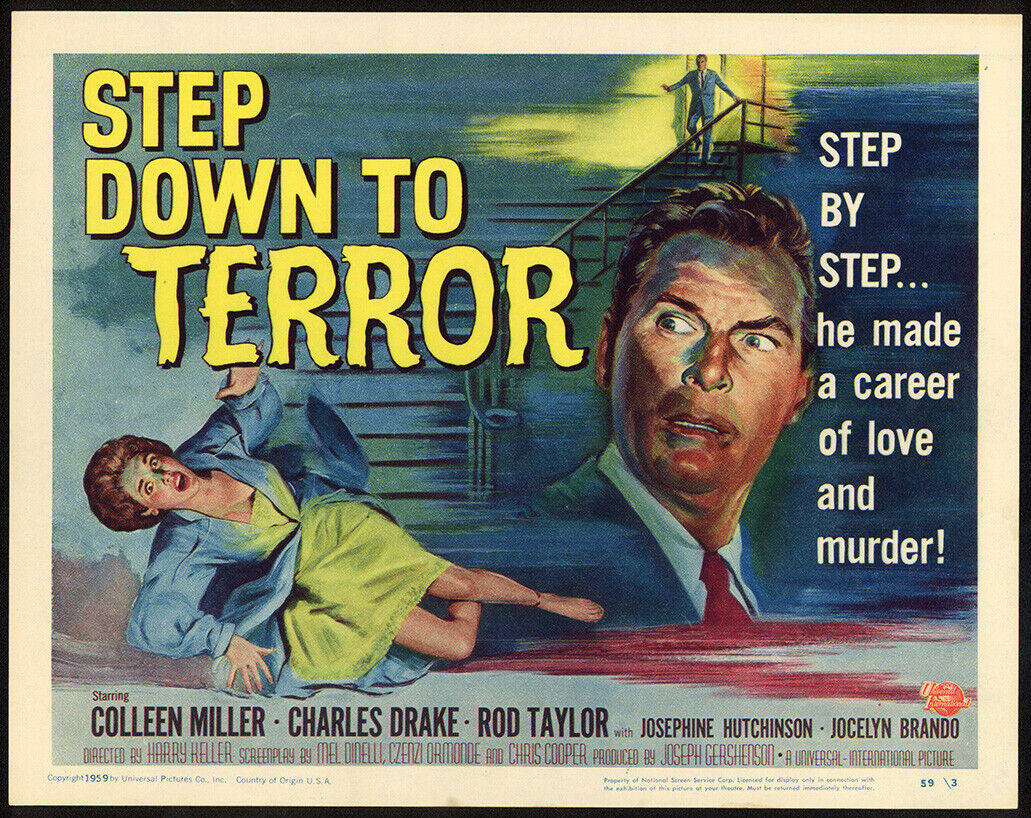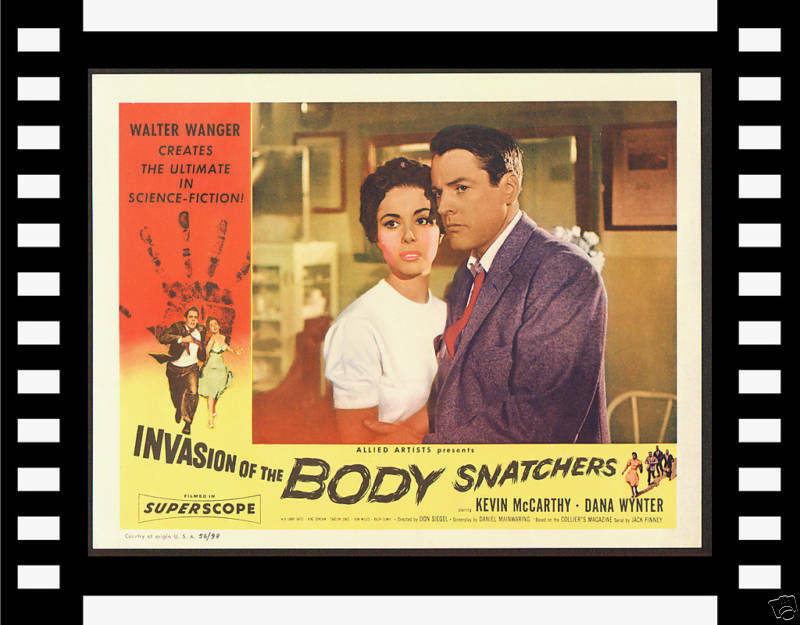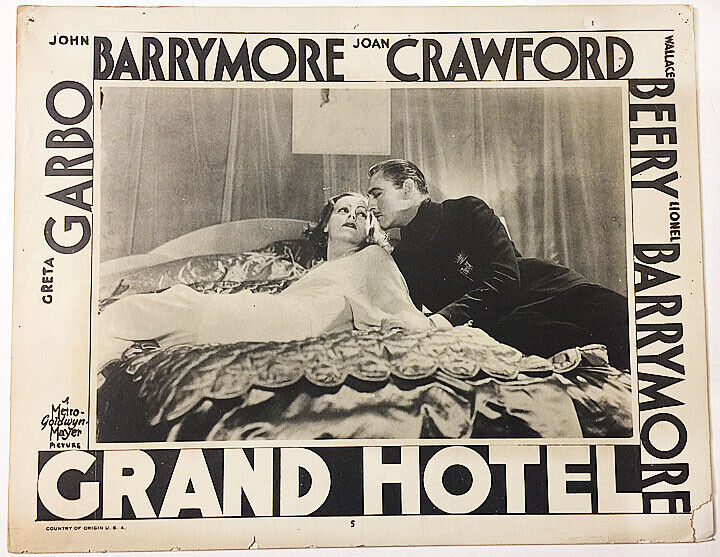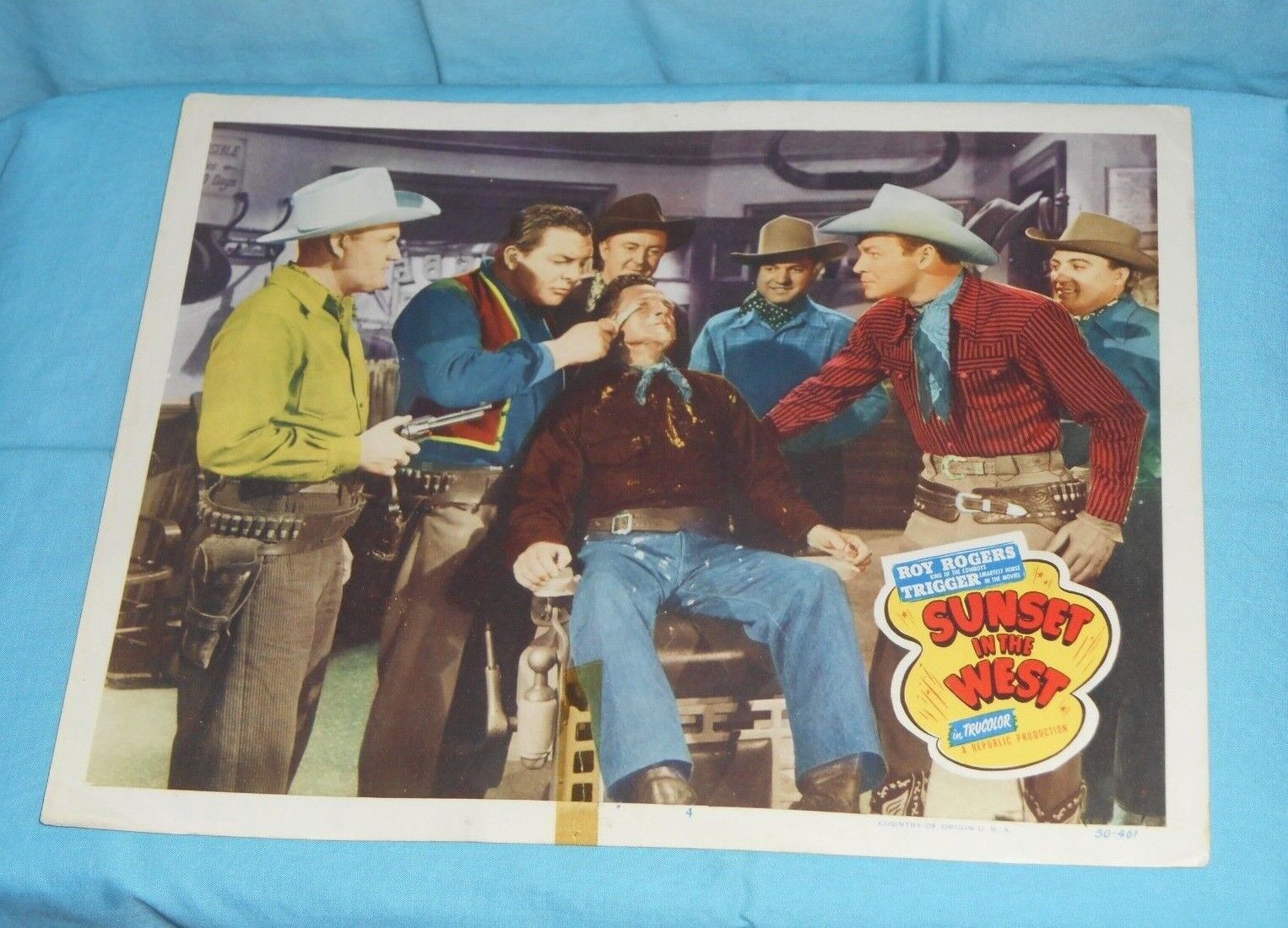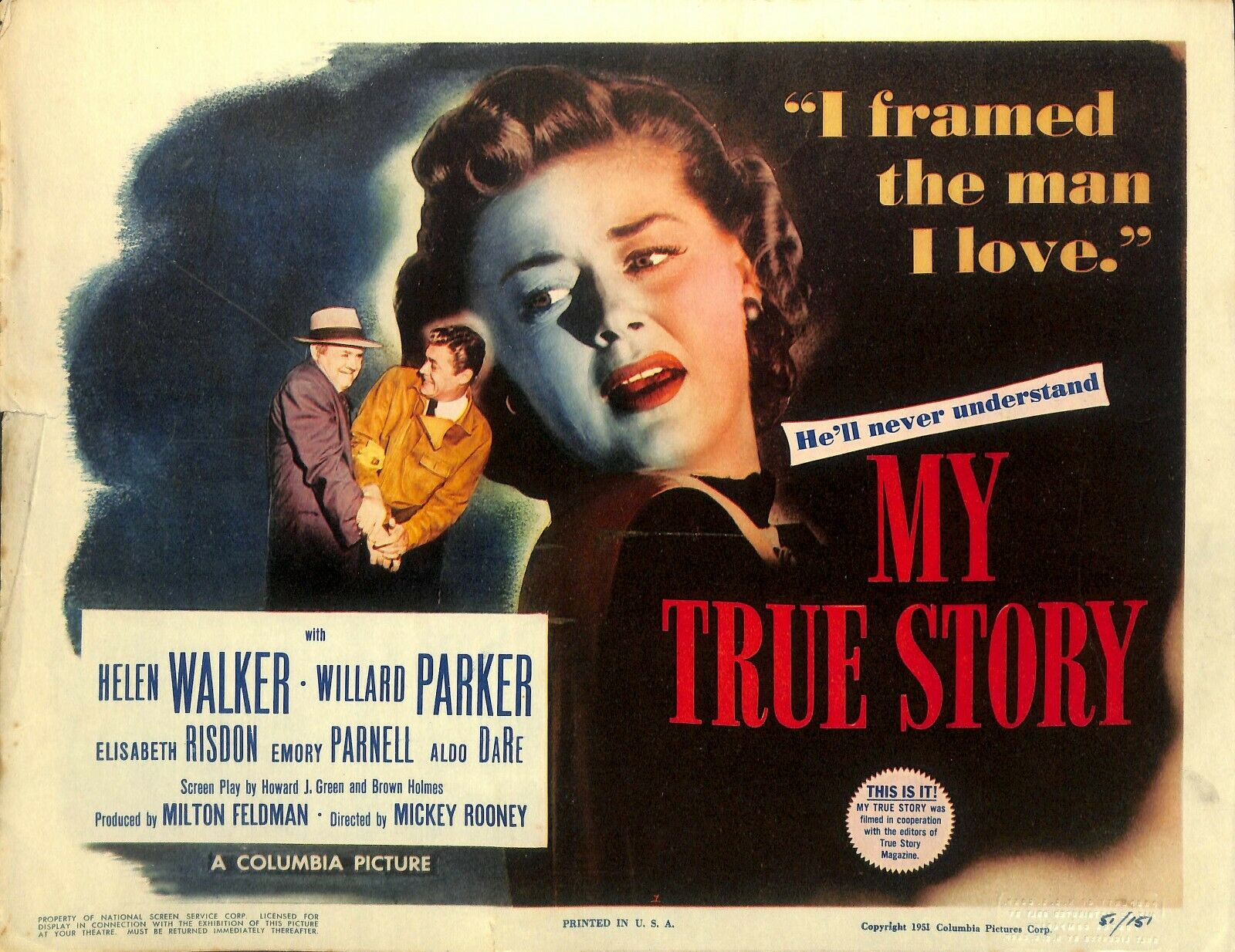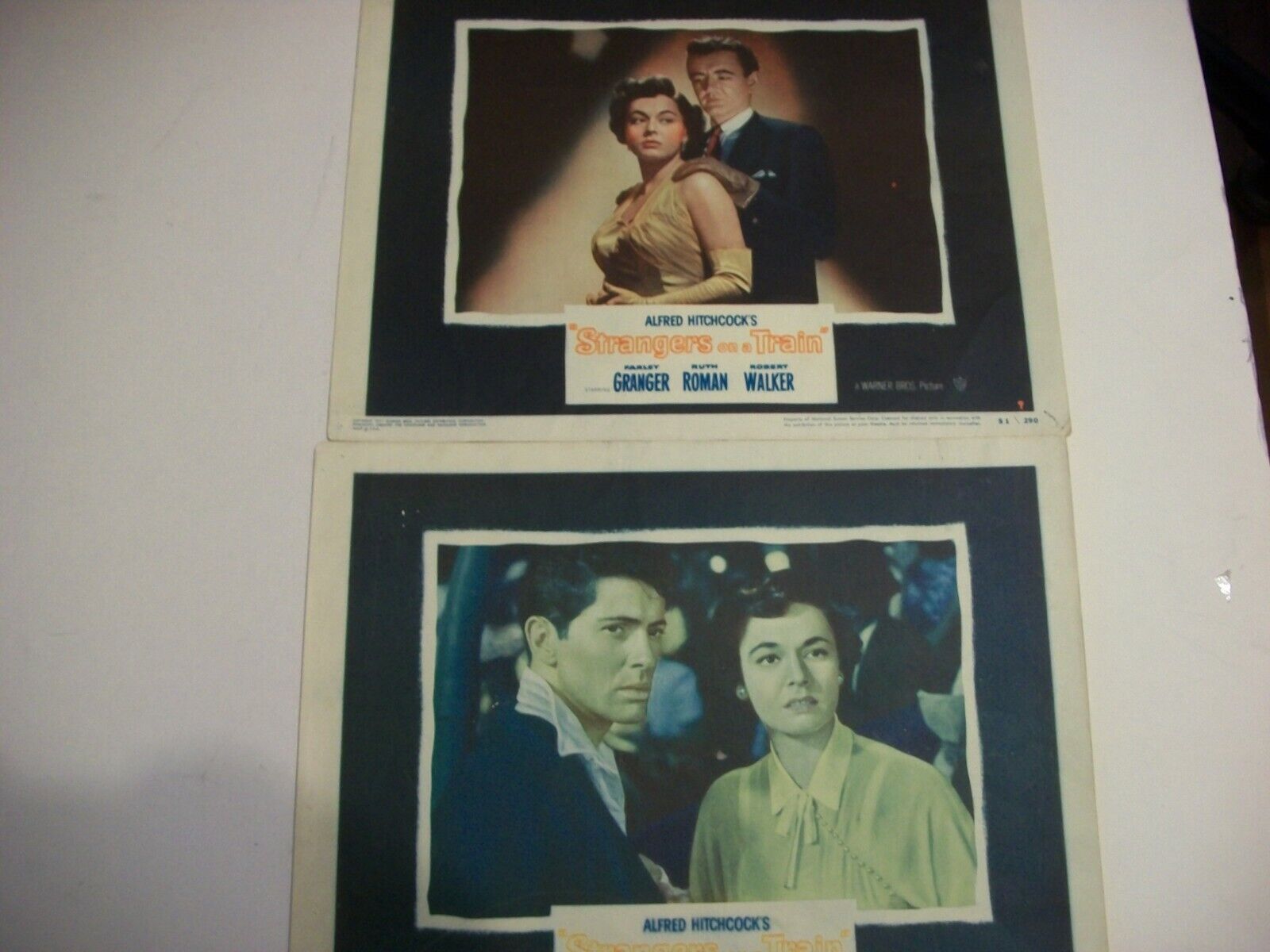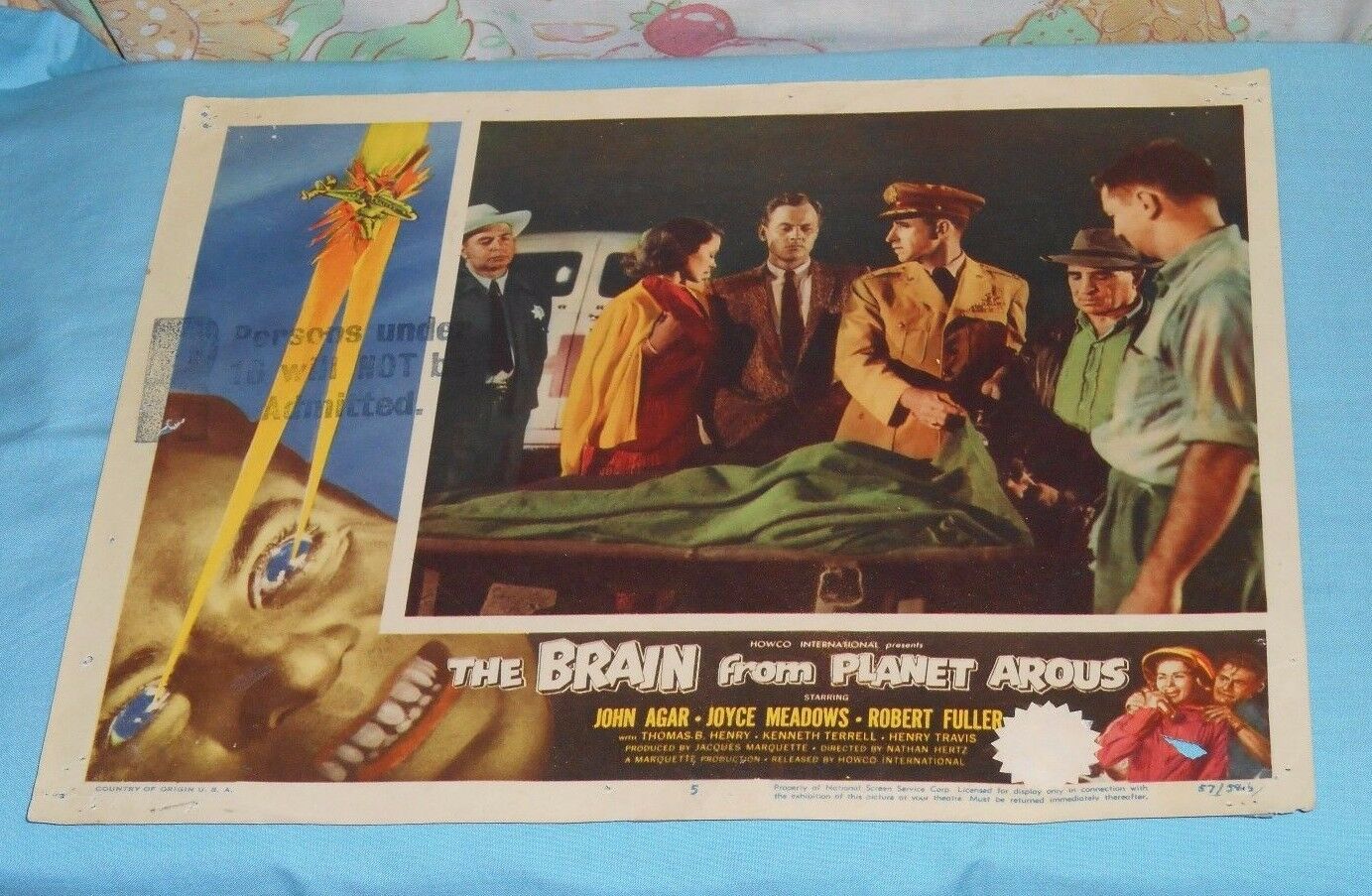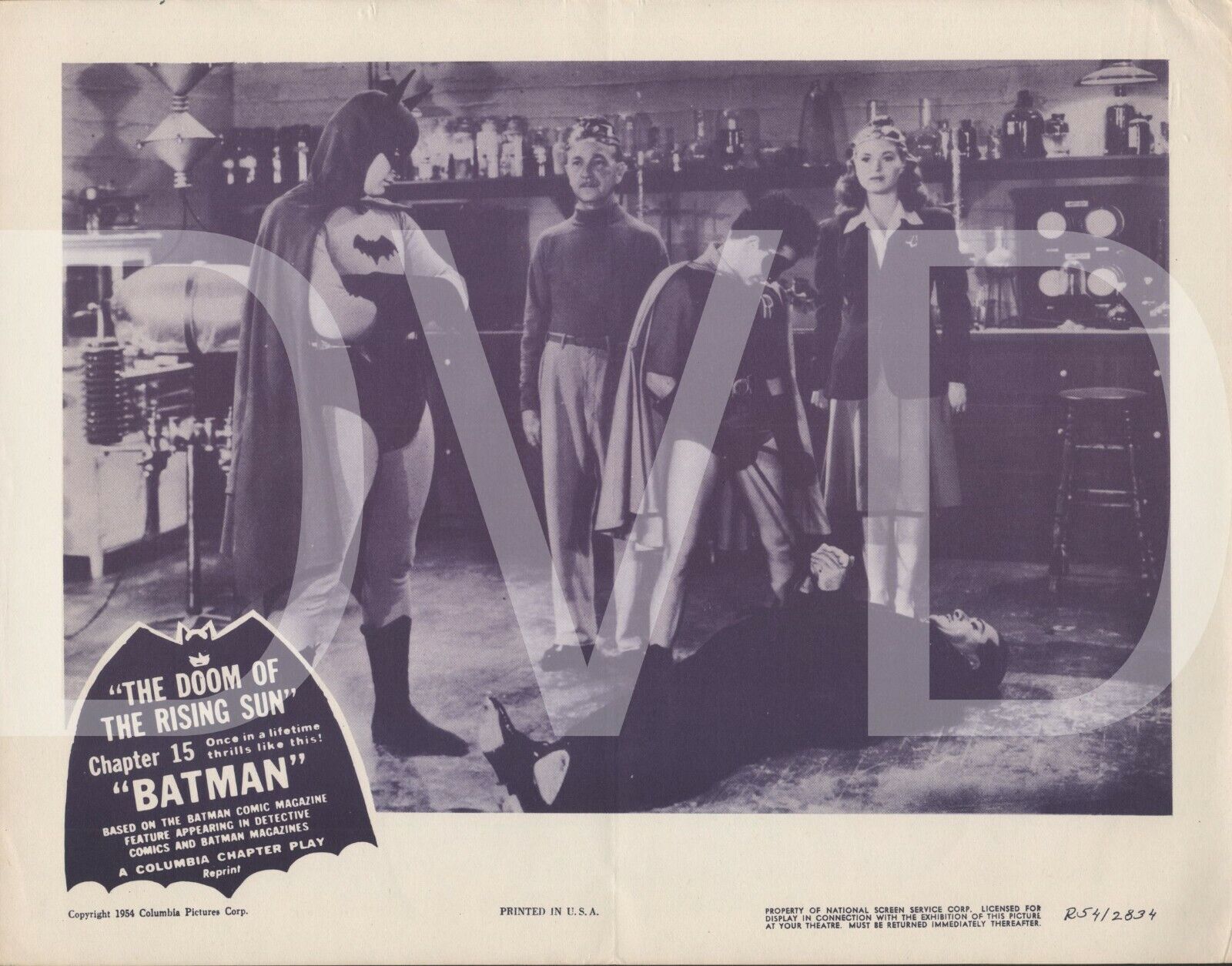-40%
Stunning DORIS DAY LOUIS JOURDAN Lobby Card Hitchcock like thriller JULIE 1956
$ 4.51
- Description
- Size Guide
Description
(This looks MUCH better than the picture above.)Stunning DORIS DAY LOUIS JOURDAN Lobby Card Hitchcock like thriller JULIE 1956
This 11 x 14 inch Lobby Card would look great framed on display in your home theater or to add to your portfolio or scrapbook! Some dealers buy my lots (see my other auctions) to break up and sell separately at classic film conventions at much higher prices than my low minimum. A worthy investment for gift giving too!
PLEASE BE PATIENT WHILE ALL PICTURES LOAD
After checking out this item please look at my other unique silent motion picture memorabilia and Hollywood film collectibles! WIN MULTIPLE AUCTIONS AND SAVE BY SHIPPING SIMILAR SHAPED ITEMS TOGETHER $$$
See a gallery of pictures of my other auctions
HERE!
This LOBBY CARD is an studio release (vintage, from the original Hollywood studio/distributor original) and not a digital copy or reproduction printing.
DESCRIPTION:
Julie is most enjoyable if one doesn't take it too seriously. Doris Day plays Julie Benton, whose off-the-coop musician husband Lyle Benton (Louis Jourdan) confesses that he in fact killed Julie's first husband. She immediately recognizes that he is so possessive of her that he would sooner rub her out than lose her altogether, and leaves Lyle, seeking protection under the wing of a country club acquaintance, Cliff Henderson (Barry Sullivan). The San Francisco police deduce that Julie is in danger from Lyle, and begin to close in on the poor woman to protect her, but she inadvertently misses them. In the film's thrilling final sequence, Julie has returned to the stewardess job she once held - without realizing that Lyle has boarded the plane sans detection, planning to murder out most of the crew and take her out next. Silent film star Mae Marsh, a "regular" in the films of director Andrew L. Stone, appears in the closing scenes as an hysterical passenger.
”
CONDITION:
This quality vintage and original Lobby Card is in Near EXCELLENT condition (with only mild edge bumps, patina, dirt/hand dirt keeping it from being Near MINT), it has sharp, crisp details and it is not a digital or a repro copy. (SEE PHOTO) It came from the studio to the theater and then went into storage where the collector I bought them from kept them for many years! I have recently acquired two huge collections from life long movie buffs who collected for decades… I need to offer these choice items for sale on a first come, first service basis to the highest bidder.
SHIPPING:
Domestic shipping would be FIRST CLASS and well packed in plastic, with several layers of cardboard support/protection and delivery tracking. International shipping depends on the location, and the package would weigh close to a pound (14-16 ounces) with even more extra ridge packing.
PAYMENTS:
Please pay PayPal! All of my items are unconditionally guaranteed. E-mail me with any questions you may have. This is Larry41, wishing you great movie memories and good luck…
BACKGROUND:
The epitome of the "pull yourself up by the bootstraps" mentality and "Que Sera Sera" mantra, Doris Day has weathered the numerous storms of both career and personal life, using these carefree and easygoing sentiments as a testament to the endearing endurance and eternal optimism that defines her infectiously positive outlook on life. Born Doris Mary Ann Kappelhoff in Evanston, OH, Day's optimistic philosophies would be tested from her earliest experiences. With childhood dreams of becoming a ballerina dashed after being involved in a near-fatal car crash, Day took to heart her mother's suggestion of refining her skills as a vocalist. Possessing a voice of distinct beauty at the youthful age of 14, Day was soon discovered by a vocal coach who arranged an appearance on a local radio station WLW. The rest, as they say, is history. Soon after her radio appearance, Day was approached by local bandleader Barney Rapp, leading the young songstress to adopt the moniker that would soon become a household name. Revealing her birth name to Rapp after auditioning with the song "Day By Day," Rapp jokingly suggested that her name was nice, though a little long for the theater's marquee. With her auditioning ballad becoming the inspiration for her stage persona, 14-year-old Day now had all the makings of a starlet ripe with potential. Discovered shortly after by big-band maestro Les Brown in 1940, Day toured briefly with his band, soon departing to accept the marriage proposal of sweetheart Al Jorden and pursue dreams of starting a family. Day's matrimonial happiness was short-lived, however, when Jorden's violent and jealous tendencies proved to be too much to take. Soon after the birth of their son in 1942, the couple divorced and Day rejoined Les Brown and his band, leading to the collaboration that would project the young singer into the heart of millions -- "Sentimental Journey." Day's contribution to film began with her appearance in Warner Bros.' romantic musical Romance on the High Seas (1948). The film, in which she co-starred with Jack Carson, was recognized with an Oscar nomination for the song "It's Magic," providing young Day with her first success as a pop singer. Throughout the 1950s, Day's wholesome image sustained her film career with successful turns in musicals (Calamity Jane [1953]) and romantic comedies (Teacher's Pet [1958]). Day's successful film career continued well into the 1960s with highlights including Alfred Hitchcock's The Man Who Knew Too Much (1956), The Pajama Game (1957), and Pillow Talk (1959). The latter is considered among the best of the Doris Day/Rock Hudson comedies, with her image as the innocently alluring virgin breathing new life into her previously wholesome persona. In April of 1968, just as she was beginning five-year contract with CBS for The Doris Day Show, Day's film career came to an abrupt end with the death of her husband/manager/producer Marty Melcher. Left penniless and deep in debt through a series of Melcher's sordid investments, Day soon bounced back. Awarded a 22-million-dollar settlement, Day found success in television with The Doris Day Show. Her future television ventures, including Doris Day Today (1975) and Doris Day's Best Friends (1985) (which included one of the last appearances of a gravely ill Rock Hudson) were just a few examples of Day's enthusiastic and enduring nature. In 1975 Doris Day authored her biography, Doris Day: Her Own Story, which became a number one best-seller. Day went on to become an active and vocal supporter of animal rights, focusing the majority of her attentions on her Animal League and Animal Foundation organizations, as well as owning the pet-friendly Cypress Inn in Carmel, CA.
Born Louis Gendre in Marseille, France in 1921, Louis Jourdan (his mother's maiden name) was Hollywood's go-to Frenchman for the majority of his career, which spanned over five decades. He trained as an actor with Rene Simon at the Ecole Dramatique and made his onscreen debut in 1939, going on to play cultivated, polished, dashing lead roles in a number of French romantic comedies and dramas. After his father was arrested by the Gestapo, Louis and his two brothers joined the French underground; his film career came to a halt when he refused to act in Nazi propaganda films. In 1948 David O. Selznick invited him to Hollywood to appear in The Paradine Case (1948); he remained in the U.S. and went on to star in a number of Hollywood films. Jourdan quickly followed The Paradine Case with Letter From an Unknown Woman, opposite Joan Fontaine and a supporting role in Madame Bovary, directed by Vincente Minnelli. He continued to work in both France and Hollywood, often playing the French playboys. In 1958, he reteamed with Minnelli to play Gaston in the musical Gigi, opposite Leslie Caron, and got to showcase his singing voice in the film. He spent a significant part of his career filming adaptations of Alexandre Dumas works. He played the title character in The Count of Monte Cristo (1961) and later played the villain, De Villefort, in a TV movie of the same story, followed by a turn as D'Artagnan in The Man in the Iron Mask (1977). In 1983, he played a Bond villain, Kamal Khan, in Octopussy. Jourdan slowed his film output by the late 1980s, and made his last film, Year of the Comet, in 1992. He died in 2015, at age 93.


